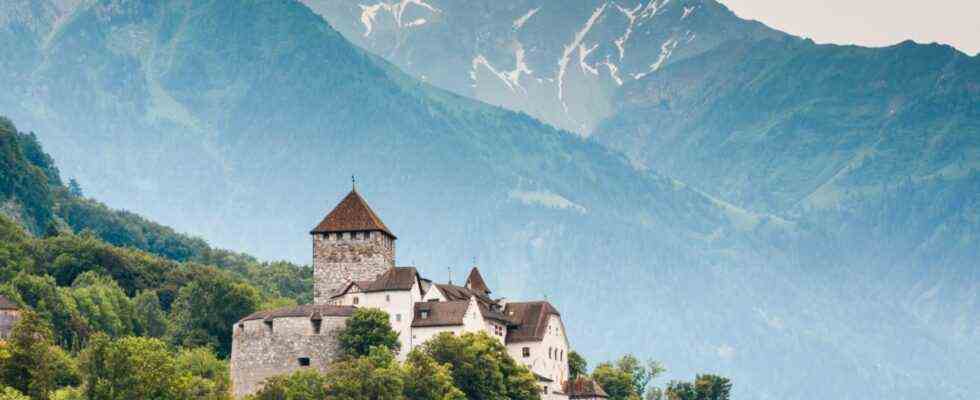The Cloppenburgs, the Müllers from the drugstore chain of the same name, Hans-Peter Wild (“Capri-Sonne”) and, more recently, Sandal King Christian Birkenstock. The latter set up his private foundation based in Vaduz in January, shortly before he and his brother Alexander sold the majority in the family business, presumably for billions: Germany’s super-rich are increasingly moving back to Liechtenstein. Billions of euros are flowing out of Germany in this way. The time is over when particularly wealthy Germans avoided the financial center after the then post-chief Klaus Zumwinkel was exposed in the media as a tax evader in 2008. This change also has to do with the general election.
There is fear among Germany’s rich that a new federal government, however composed, could tax high incomes, large fortunes or inheritances more heavily. Even if the party Die Linke will not co-govern in Berlin, they fear that the SPD and the Greens will decide significantly higher taxes, not least in view of the enormous increase in national debt caused by the pandemic. This is what Liechtenstein asset managers report from discussions with German clients. Some of them point out that even CDU financial expert Friedrich Merz had thought aloud about a possibly higher inheritance tax.
In the past ten years, investors have avoided Liechtenstein
Demand has risen not just since election Sunday, but for a few months now, “especially from very rich German families and family offices who want to invest their assets in Liechtenstein,” says a financial center player in Vaduz. The election campaign in Germany “only accelerated this trend”. Simon Tribelhorn also notes that Liechtenstein is “enjoying increasing popularity” as a banking and financial center. He is the managing director of the Liechtenstein Bankers Association. “This is also evidenced by the inflow of new money at the location. This also includes customers from Germany.” Are they afraid of higher taxes in the future in the principality? “I believe that this is also due to a general uncertainty about the question of ‘how next'”, says Tribelhorn.
For decades, little Liechtenstein in the Rhine Valley between Austria and Switzerland was seen as an effective hiding place, especially for money launders and tax evaders from all over the world. That changed suddenly when an employee of the fiduciary division at the princely LGT Bank copied the data of hundreds of foreign customers in 2008 and sold it to the tax authorities of the respective countries of origin. The informant was richly rewarded for this by these states and has since gone into hiding with the help of secret services and a false identity. Thanks to his data, several hundred other tax evaders and fraudsters were exposed in Germany alone, in addition to Zumwinkel.
That damaged Liechtenstein’s reputation. From then on, investors not only made a wide detour around the country, but they also withdrew billions of euros from there. In particular, business with Liechtenstein private foundations collapsed, which for decades were considered a particularly suitable hiding place for black money. Their number fell from a good 50,000 at the end of the noughties to less than 9,000 in 2020. The principality was also in the international pillory and initiated comprehensive reforms, especially under pressure from the USA and the EU. Since then there has been talk of a “white money strategy”. Liechtenstein not only concluded bilateral tax agreements with many countries, but also provides international administrative assistance in tax matters. This means, for example, that German tax authorities are automatically and regularly informed about investment income from German citizens in Liechtenstein.
The actors assure that the country no longer wants to be a haven for tax evaders
Against this background, those responsible in Vaduz do not like to hear Liechtenstein still being referred to as a “tax haven”. Even if the state tax burden is significantly lower compared to Germany. In Liechtenstein, no inheritance or trade taxes are levied, dividends, as well as rental income and investment income generated abroad are also tax-free and the income tax is significantly lower than in this country. Financial center actors in Vaduz counter that it is the right of the sovereign state of Liechtenstein to set its own tax rates. At the same time, they affirm that the country is no longer interested in being a haven for foreign tax evaders.
“The investors, who are now increasingly coming back, are not looking for hiding places with us, but rather stability, and they are often concerned with structuring and safeguarding their assets for the future,” says one. For example, to regulate company transfers and to ensure family peace in super-rich families on a permanent basis. Liechtenstein offers all kinds of special constructs for this; Foundations, trusts, institutions, for example. Company headquarters are also often relocated to the principality. As in Switzerland, in Liechtenstein a super-rich can also hope for a right of residence that is difficult for ordinary people to obtain.
“The reason for the increased interest in Liechtenstein is certainly that Liechtenstein’s reputation has improved noticeably over the past few years,” says Simon Tribelhorn from the Association of Banks. “As an EU-regulated country in the Swiss franc area, Liechtenstein is also interesting for customers to diversify their investments.” “The many years of expertise in wealth management and, last but not least, the country’s political and economic stability also played an important role”. And you can see that the topic of sustainability, on which several institutes are focusing, is attracting increasing interest.
The Federal Ministry of Finance in Berlin assumes that Germans have stashed around 11.8 billion euros in Liechtenstein.

